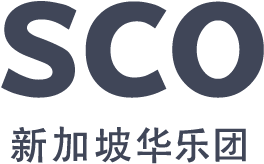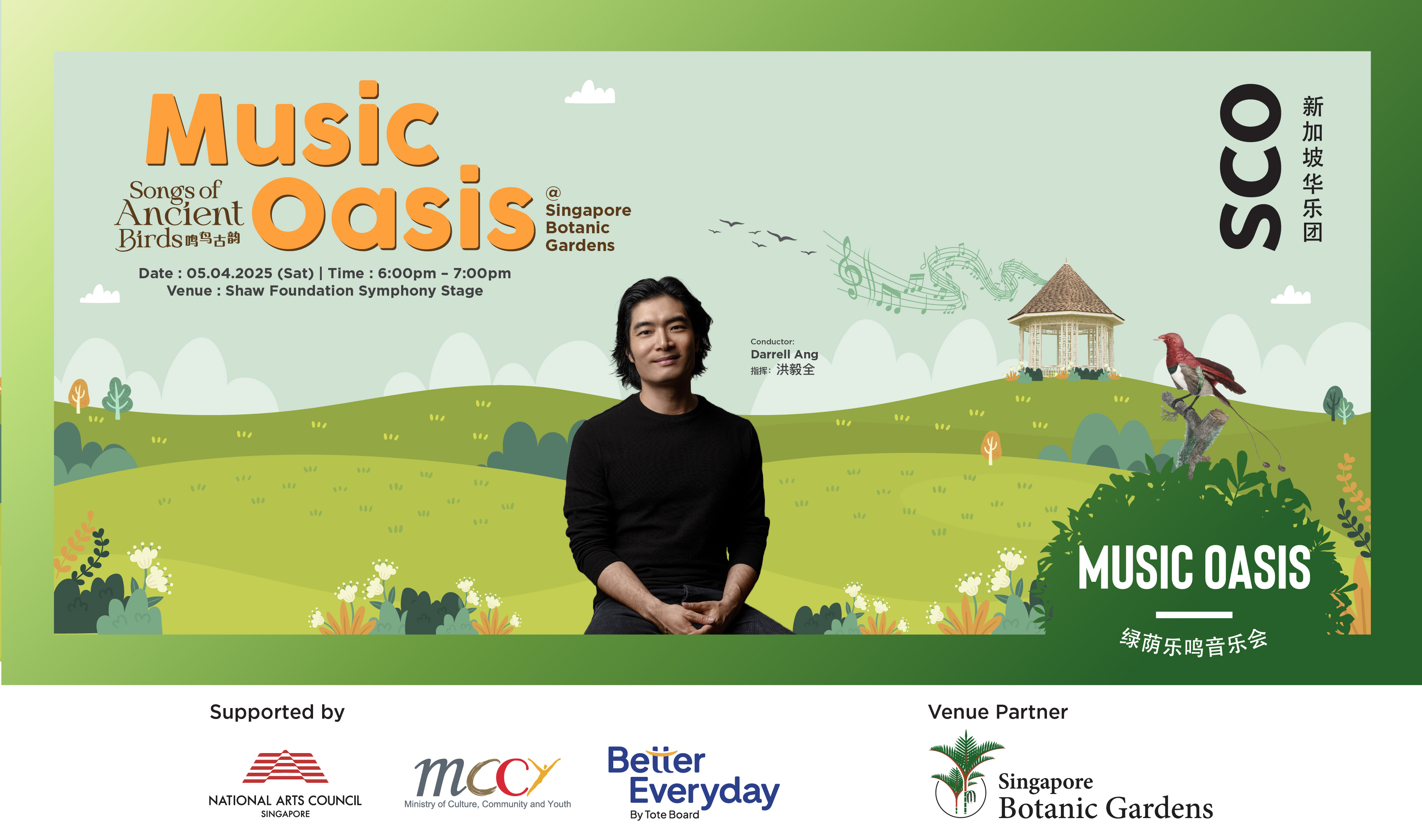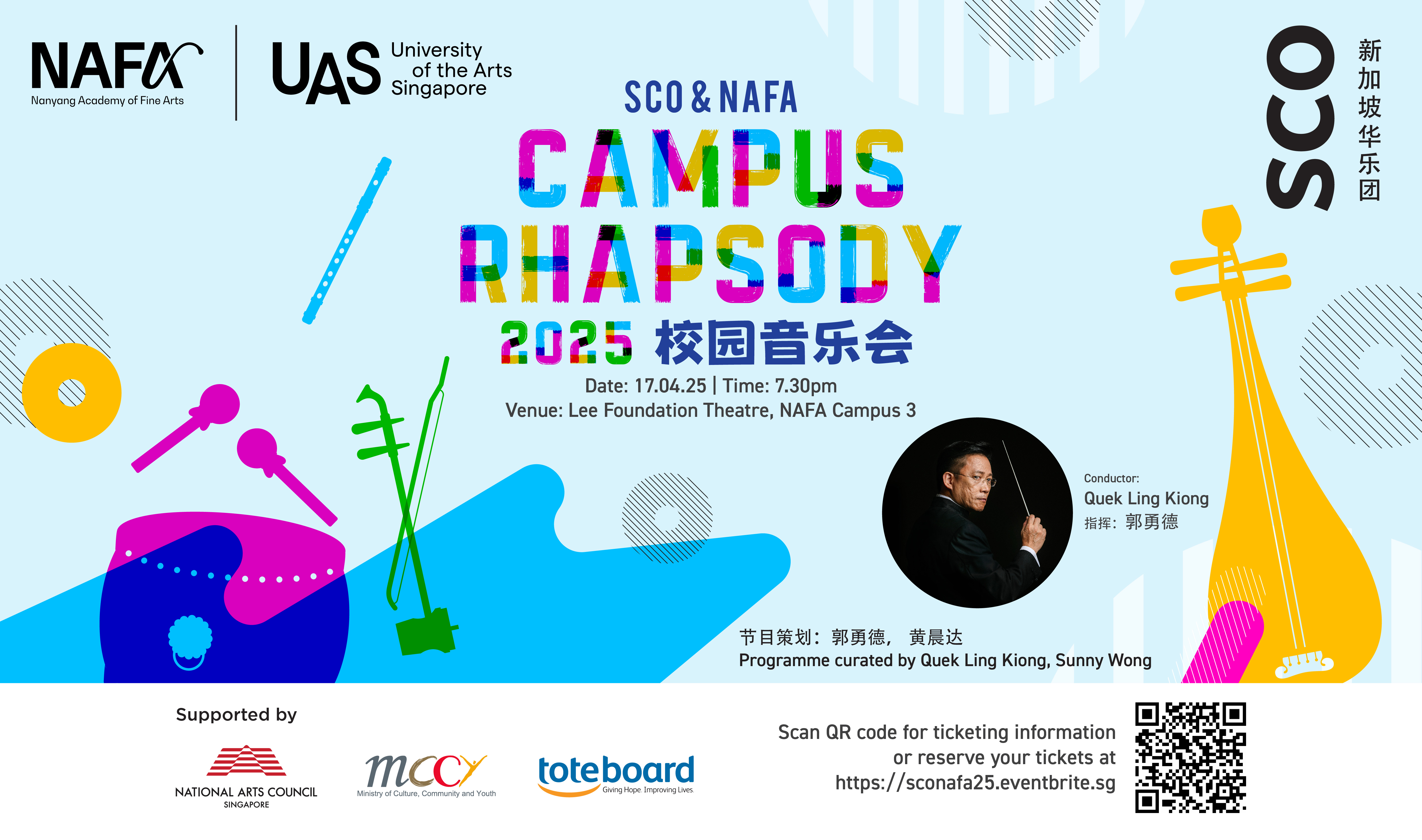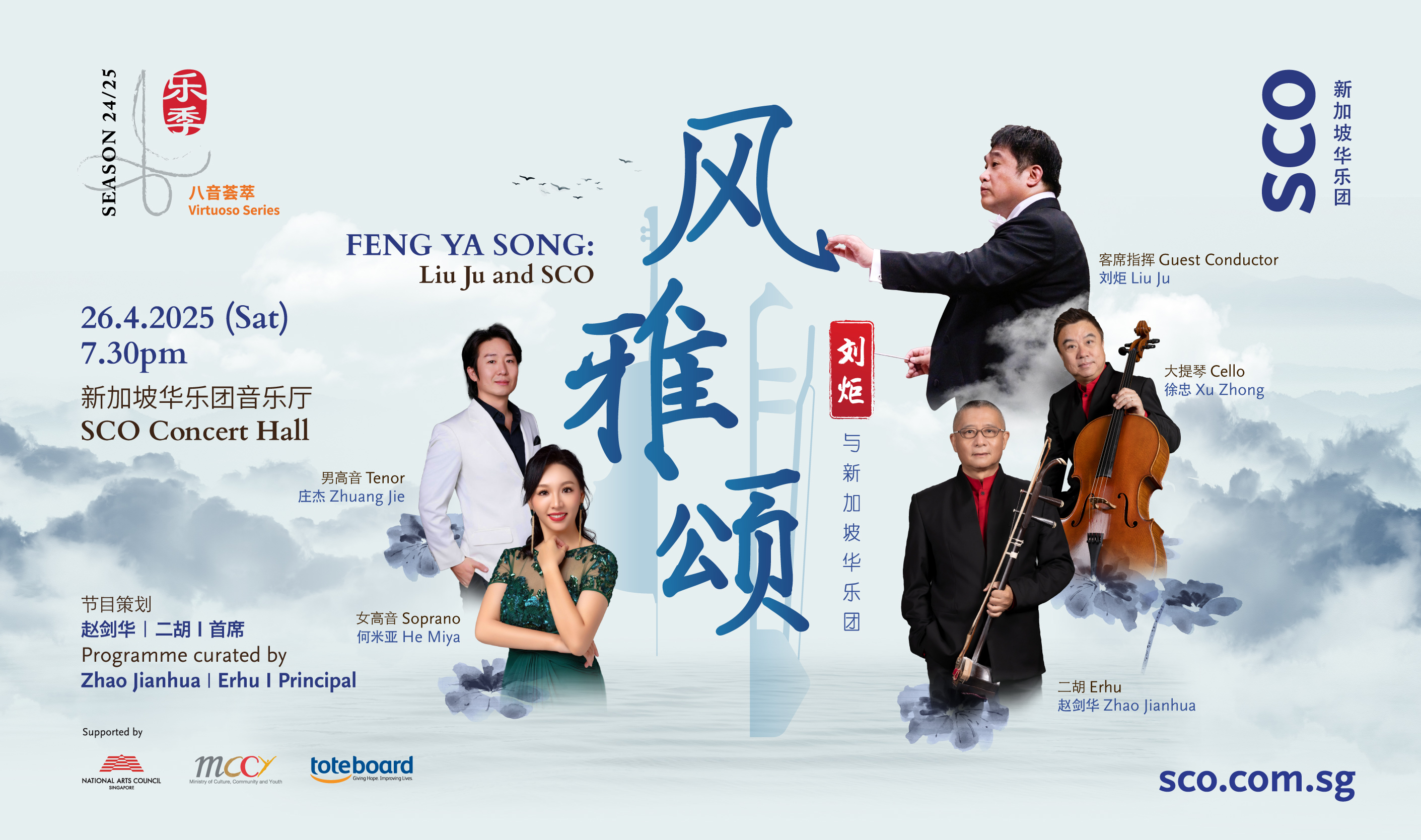Introducing SNYCO's New Guest Conductor — Mr. Lien Boon Hua
Accomplished orchestral and opera conductor Mr. Lien Boon Hua joins SNYCO as Guest Conductor. Since Boon Hua’s last collaboration with SNYCO in 2022, he has been anticipating the opportunity to work with the incredibly talented young musicians in SNYCO again. No stranger to mentoring youth, Boon Hua is a passionate music educator on the conducting faculty at Yong Siew Toh Conservatory of Music (YST). He also leads the Conservatory’s music ensemble OpusNovus. Ahead of the next SNYCO season, huayue caught up with Boon Hua to talk about what the youths are to expect from their new mentor.
Both Wayfarer Sinfonietta and OpusNovus specialise in performing contemporary music, especially newer works by internationally renowned composers and lesser known gems of the contemporary repertoire. Chinese orchestral works are also from the same modern-contemporary era, so what attracts you to these works versus pieces from older periods? How about the pressure between doing new works versus classic repertoire?
I'm drawn to contemporary music because it represents the living, breathing heart of musical innovation. It's like exploring uncharted territories and discovering new landscapes of sound that could challenge or complement our musical taste. While the classical repertoire has a timeless beauty that resonates deeply within us, I also believe that music is a living, evolving art form that reflects our ever-changing world. The pressure between performing new and classic repertoire is a delicate balancing act; it's about preserving the heritage while pushing the boundaries of artistic expression.
Recently you toured Adelaide with the Yong Siew Toh Conservatory students, how is it like to travel and perform with young musicians?
Traveling and performing with young musicians is an absolute delight. Their enthusiasm is truly infectious, and their fresh perspective keeps me inspired. It brings me back to a time when I was their age and experiencing the excitement of going on a tour again. Witnessing their growth is a unique privilege and it's a reminder of the importance of music education and the potential within the next generation of musicians.
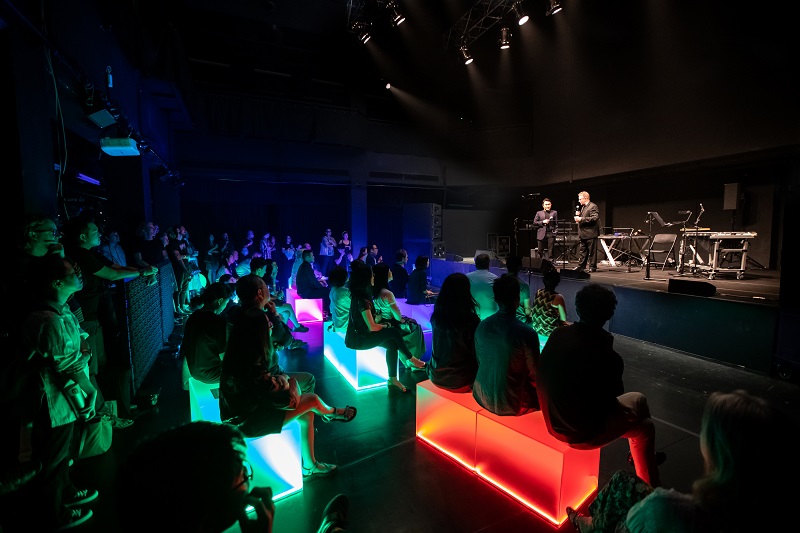
Photo by Yong Siew Toh Conservatory
What are the most interesting differences between conducting a symphonic orchestra and a Chinese orchestra?
The differences between conducting a symphony orchestra and a Chinese orchestra are fascinating. One particular difference lies in the orchestral sound. Symphony orchestras these days often strive for a harmonized, uniform sound, while Chinese orchestras proudly maintain their regional identities, resulting in a rich tapestry of distinctive instruments and timbres. Balancing and harmonizing these diverse elements is a thrilling and deeply rewarding endeavour for any conductor.
My journey into the world of Chinese music a few years ago has been a fascinating voyage of self-discovery and a connection with my cultural roots. Along this path, I've been fortunate to receive a warm and generous welcome from many friends and colleagues within the Chinese music community. Their support has been invaluable, and I'm deeply appreciative of their kindness. Especially so in an industry often characterized by fierce competition, the conductors of SCO, including Maestros Yeh Tsung, Quek Ling Kiong, and Moses Gay, are not only remarkable in their craft, but they are also exceptional in their generosity. Rather than guarding their expertise, they embraced me with open arms and shared their profound knowledge and experience with Chinese music. Their kindness imparted a valuable lesson to me about the importance of uplifting others and passing on wisdom to nurture our music community.
As a trombonist, which wind instrument in the Chinese orchestra intrigues you or would you be keen to pick up?
Among the wind instruments in the Chinese orchestra, I find the sheng particularly intriguing. Its ancient history and hauntingly beautiful sound captivate me. Learning to play the sheng would be a fascinating journey into the heart of Chinese music.
What is your advice to SNYCO members considering a full-fledged career in music?
Pursuing a career in music is both rewarding and challenging. My advice is to cultivate versatility, embrace lifelong learning and remain open to diverse musical experiences. Music has a special way of connecting people deeply. The bonds that you create with fellow musicians during rehearsals, concerts and shared moments stay with you for a lifetime. These friendships not only enrich your personal and professional life but also provide inspiration and support during your highs and lows, and make navigating life’s unpredictable journey a lot more fun.
Which exciting productions do you look forward to in 2024? What inspires you to work with young orchestral musicians?
I'm eagerly anticipating several exciting productions in 2024, including the SCO Young Children Concert, SNYCO concerts, guest conducting overseas as well as projects with Wayfarer Sinfonietta and OpusNovus. Working with younger musicians is invigorating because their youthful energy adds a special electricity to our performances, and that’s precisely what concerts are to me: an opportunity to create magical and unforgettable moments together on stage, shared with our audience.
How do you envision the orchestra scene 50 years from now? Considering that you mostly mentor a generation of digital natives who readily embrace artificial intelligence, do you think conductors will be obsolete because of AI?
The orchestra scene in 50 years will likely be vastly different due to technological advancements. While AI can assist in various aspects of music creation and performance, I don't believe conductors will become obsolete. Music is a deeply human experience, and a conductor's role goes beyond mere technical direction; it involves interpretation, emotion, and connection with the orchestra and audience. AI can enhance our capabilities, but the essence of music will always require human touch.
You’ve performed all over the world; which is your most memorable experience?
Performing around the world has given me many unforgettable experiences but one of the most memorable in recent years has to be the Esplanade’s 20th anniversary concert with the Singapore Symphony Orchestra. This event was particularly touching for me as it symbolized the remarkable progress of Singapore's music scene over the past two decades. The concert featured talented Singaporean soloists, composers, and myself, performing to a packed hall. The centrepiece of the evening was a newly commissioned composition that showcased the composers as soloists in individual movements, involving three choruses and the magnificent Klais organ. It was not just a sonic extravaganza but, more importantly, a moment that filled me with immense pride as a Singaporean artist.
著名乐团及歌剧指挥连汶华先生正式加入新加坡国家青年华乐团担任客座指挥。连汶华最近一次与新加坡国家青年华乐团合作是在2022年。自从那次合作,连汶华便十分期待与青年华乐团才华横溢的年轻音乐家再续前缘。连汶华在指导年轻人方面一点都不陌生,毕竟,他在新加坡国立大学杨秀桃音乐学院指挥系里,也是一位对教育满腔热血的音乐教育家,同时还负责指导杨秀桃音乐学院的当代音乐团OpusNovus。《华乐》趁新加坡国家青年华乐团的新乐季展开前,与连汶华聊了一番,借此机会让青年音乐家更加了解他们的新导师。
旅行者小交响乐团(Wayfarer Sinfonietta)和OpusNovus的专长都是演奏现代音乐,无论是国际知名作曲家的新作品,或是现代音乐较冷门的曲目,都难不倒这些乐手。许多华乐作品也来自这个时代,都是现当代作品。请问是什么因素吸引您专攻这些曲目,而非更有历史性的曲目呢?在选择呈现的作品方面,选择新作品或经典曲目,分别会有什么压力呢?
我之所以被当代音乐吸引,是因为它代表了音乐创新方面跳动的脉搏,是活生生,呼吸着的创意。所以,探索当代音乐,就像是探索未知的领域,能够发现全新且由音乐构建的景观。这些景观有的会挑战我们的音乐品味,有的则与之相辅相成。传统曲目的美,经过时间洗礼,成为一种经典,在我们心中产生共鸣。这点我十分了解,但我也相信音乐是一种活生生的、不断发展的艺术形式,实时反映着变化多端的世界。因此,要在新旧乐曲之间游走,需要的是一种微妙的平衡,在保留文化传统的同时,开拓新的艺术疆土。
最近,您与杨秀桃音乐学院的学生一起到了澳洲阿德莱德演出。与年轻音乐家一起旅行、表演,感觉如何?
与年轻音乐家一起旅行、表演,感觉实在棒极了。年轻人的热情十分有感染力,他们新鲜的视角也让我深受启发。这次的经历,仿佛让我回到我年轻时期。那个年龄的我,对于出国演出感到无比兴奋,而这些学生唤起了我的那种感觉。有机会见证他们的成长,确实是一种难得的机会,我感到十分荣幸。同时,这也提醒着我们音乐教育的重要性,以及下一代音乐家的潜力。
指挥交响乐团和华乐团之间最有趣的区别是什么?
指挥交响乐团和中国交响乐团之间的差异太有趣了。其中一个最特别的差异,在于乐团所呈现的音色。现在的交响乐团在演奏中,一般追求和谐、统一的音色,而华乐团则乐于凸显地域差异,各种乐器百花争艳,音色迥异,从而呈现非常丰富的曲调。相信对于任何一位指挥家来说,能够让这么多元的元素相互平衡,相辅相成,都会是一个非常刺激而且成就感满满的过程。
几年前,我开始走进华乐的世界,开启了一段自我发现的奇幻旅程,让我更加认识自己的文化根蒂。一路走来,我非常幸运,遇到了华乐界许多同仁与前辈,受到了他们的热情欢迎。他们对我的支持是如此珍贵,而我也怀有万分谢意。华乐界的激烈竞争是众所周知的,但新加坡华乐团的指挥,包括葉聰、郭勇德、倪恩辉,不仅技艺过人,最难得的是,他们一点都毫不藏私。反之,他们都张开双臂欢迎我加入这个圈子,与我分享他们对华乐深刻的认识,以及丰富的经验。他们的善良是我人生中宝贵的一课,让我明白提携晚辈、分享智慧的重要性。如此一来,音乐圈才能收到滋养,茁壮成长。
您擅长吹奏长号。华乐团里有什么乐器是让您感兴趣,或是让您想要学习演奏的呢?
在华乐团多种管乐器中,我个人觉得笙特别耐人寻味。笙的历史悠久,而且音色深幽绝美,十分吸引我。我相信,要是能够学习演奏笙,那将会是一段让我深入华乐的世界的动人旅程。
对于正在考虑成为全职音乐家的青年华乐团成员,您有什么建议呢?
全职音乐家的生活收获满满,但挑战也十分可观。我的建议,就是培养灵活变通的能力,真的做到终身学习,并且对于各种不同的音乐体验保持开放态度。音乐有一种独特的力量,让人与人之间建立很深的连接。在排练、演出、各种共享时刻所建立起的友谊,将伴随一生。这些友谊不仅丰富我们的人生与职涯发展,也在我们经历各种起伏时,带来启发,给予支持。还有,有了他们的陪伴,我们在迎接人生中各种意想不到的事时,更能体会其中乐趣。
2024年有哪些演出是您特别期待的?您为什么会想和青年音乐家合作呢?
2024年有许多我十分期待的精彩演出与计划,像是新加坡华乐团儿童音乐会、新加坡国家青年华乐团各场音乐会、海外客座指挥,以及与旅行者小交响乐团和OpusNovus的演出。与年轻的音乐家合作,十分令人振奋,因为年轻人的青春活力总是能为演出增添了一股特别的能量。依我看,这就是音乐会的意义:音乐会给我们一个机会,一起在舞台上共创动人又难忘的回忆,并将之与观众分享。
您认为,50年后,乐团会是怎样的面貌呢?您工作的一大部份,就是指导“数码原住民”一代的年轻人。这一代人对于人工智能的接受度很高。有鉴于此,请问连指挥是否觉得指挥会被人工智能取代呢?
出的许多面向,但我不认为指挥会被人工智能取而代之。音乐的本质,就是“人”。指挥的角色,也不仅仅是技术指导。指挥要做到的,有诠释、情感、与乐团建立连接,也与观众建立连接。人工智能可以放大我们的能力,但回归到音乐的本质,还是以人为主。
您到过世界各地演出,最难忘的经历是什么呢?
在世界各地演出确实让我得到了许多难忘的经验,但要说这几年最难以忘怀的一次演出,我觉得是我和新加坡交响乐团一起呈现的滨海艺术中心20周年音乐会。这场音乐会让我尤其感动,因为它标示着新加坡音乐界在过去二十年中取得的卓越成长。除了我之外,音乐会还邀请了许多才华横溢的本地独奏家和作曲家参与,当天的表演厅座无虚席。当晚的压轴曲目是一首全新的委托曲目,以个别的乐章让作曲家展示其兼具的独奏者身份。这首曲目除了有三段副歌,还运用了德国克莱斯(Klais)管风琴。那场音乐会不仅仅是一场音乐盛会,更重要的是,它让身为新加坡艺术家的我,感到无比自豪。
